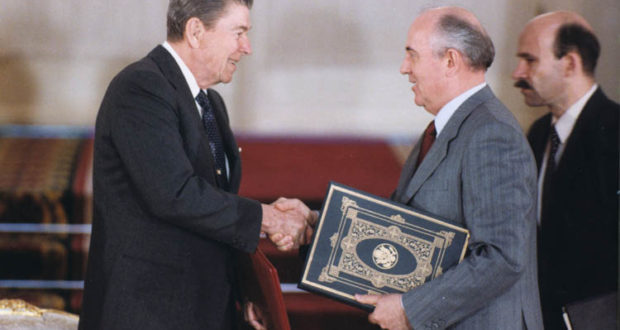April 4, 2019
The UK House of Commons Defense Committee has today published its report into the termination of the 1987 Intermediate Nuclear Forces Treaty. The inquiry was launched in November 2018, shortly after the US announced that it was to withdraw from the treaty as a result of Russia’s deployment of a ground-launched cruise missile which violated the agreement. After a brief delay to allow Moscow a period to reflect, the US government gave formal notice of withdrawal on 1 February 2019: this will become effective after six months.
Amongst its conclusions, the select committee report, entitled ‘Missile Misdemeanours: Russia and the INF Treaty’, found that:
- Russia is solely responsible for the demise of the treaty due to its fielding of the 9M729 cruise missile – in contrast, the US has sought to sustain the agreement at every stage;
- Russia’s violation of the treaty has come against a backdrop of Moscow feeling that the agreement is unfavourable to the country’s interests;
- Prospects of resurrecting the INF Treaty or negotiating a new agreement are remote, and;
- NATO must agree a robust response to Russia’s violation of the treaty to ensure that the Kremlin accrues no military advantage.
Evidence from the Human Security Centre (HSC) was featured in the report. Most notably, our highlighting of President Putin’s recent claim that the INF Treaty provisions represented “unilateral disarmament” for Russia, and the importance of conventionally armed cruise and ballistic missiles to Kremlin strategy, were given prominence.
HSC Senior Fellow, Dr Rowan Allport, said “The committee report clearly lays out the responsibility Russia bears for the demise of the INF Treaty, and the requirement for robust countermeasures by NATO. Crucially, the potential benefits Moscow may derive from field conventionally-armed – and hence more ‘usable’ – intermediate-range missiles are also highlighted. It is vital that the actions taken by the US and its allies recognise that the Kremlin is striving not only for new nuclear systems, but also a robust non-nuclear deterrent and warfighting capability”.
Image: Reagan and Gorbachev shake hands after signing the INF Treaty ratification during the Moscow Summit on 1 June 1988 (Source:
 Human Security Centre Human Rights and International Security Research
Human Security Centre Human Rights and International Security Research




